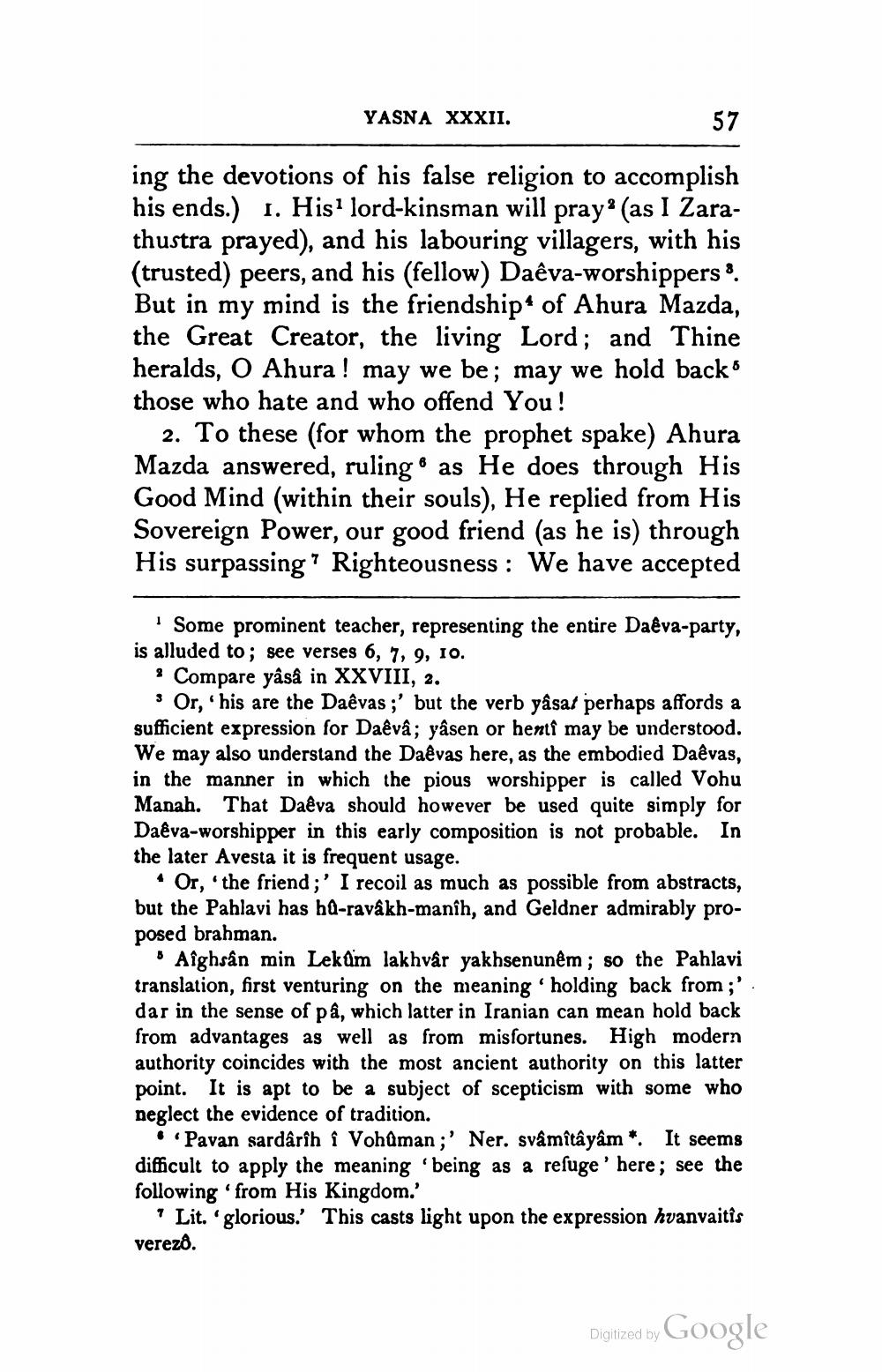________________
YASNA XXXII.
57
ing the devotions of his false religion to accomplish his ends.) 1. His? lord-kinsman will pray' (as I Zarathustra prayed), and his labouring villagers, with his (trusted) peers, and his (fellow) Daêva-worshippers 8. But in my mind is the friendship of Ahura Mazda, the Great Creator, the living Lord; and Thine heralds, 0 Ahura ! may we be; may we hold back those who hate and who offend You!
2. To these (for whom the prophet spake) Ahura Mazda answered, ruling & as He does through His Good Mind (within their souls), He replied from His Sovereign Power, our good friend (as he is) through His surpassing? Righteousness : We have accepted
Some prominent teacher, representing the entire Daêva-party, is alluded to; see verses 6, 7, 9, 10.
Compare yâså in XXVIII, 2. 3 Or, his are the Daêvas ;' but the verb yâsat perhaps affords a sufficient expression for Daêvâ; yâsen or henti may be understood. We may also understand the Daêvas here, as the embodied Daêvas, in the manner in which the pious worshipper is called Vohu Manah. That Daeva should however be used quite simply for Daêva-worshipper in this early composition is not probable. In the later Avesta it is frequent usage.
• Or, the friend;' I recoil as much as possible from abstracts, but the Pahlavi has hQ-ravakh-manîh, and Geldner admirably proposed brahman.
Aighsân min Lekum lakhvâr yakhsenunêm ; so the Pahlavi translation, first venturing on the meaning 'holding back from ;'. dar in the sense of pâ, which latter in Iranian can mean hold back from advantages as well as from misfortunes. High modern authority coincides with the most ancient authority on this latter point. It is apt to be a subject of scepticism with some who neglect the evidence of tradition.
• Pavan sardârîh i Vohman;' Ner. svâmîtâyâm *. It seems difficult to apply the meaning 'being as a resuge' here; see the following from His Kingdom.'
Lit. ' glorious. This casts light upon the expression hvanvaitis verezo.
Digitized by
Digitized by Google




